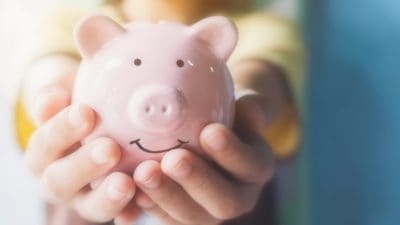It’s been several weeks since Russia invaded Ukraine, yet it feels longer than that, perhaps because the invasion had fundamentally shifted the way we think. It’s created a clear demarcation with everything coming before it feeling like one world and everything coming after feeling like another.
It’s amazing that a war on a continent that’s not our own can have this profound of an effect on us, and it shows just how globally minded we’ve become. The world is a massive web of connections in which a tremor in one part sends vibrations to ours.
One of those vibrations is inflation. Already dubbed the new “pandemic,” inflation was a problem before the war, and it’s an even bigger problem now. Though the effects of the war are still being parsed out, Canadians should certainly budget for higher costs of living.
What exactly will be more expensive in 2022? Let’s take a look.
1. Energy
First, let’s talk energy.
Sanctions on Russia have not been good for energy — above all, crude oil and gas. From energy multinationals like Shell to national bans on imports, the global boycott against Russian oil has driven prices upward, with no signs of coming back down.
Nationwide, we’re paying around $1.81 per litre, which is over $0.20 higher than last week and over $0.60 higher than last year. Some areas of the country are experiencing prices over $2 per litre.
Even before the invasion of Ukraine, Canadians were already paying higher-than-average prices for gas. Supply shortages, increasing demand by drivers, and a stubborn refusal by OPEC to produce more oil made gas prices nearly unaffordable.
Now, there is some good news: the United Arab Emirates is currently pushing OPEC to produce more oil to make up for supplies lost in sanctions on Russia. In Canada, Alberta has decided to drop the provincial tax on gas, which could drop prices there as much as 13 cents. And on Friday, March 11, gas prices dropped overnight.
That said, the global economy still hasn’t worked out how to fill the gaps left by Russian oil. And with summer approaching, it’s unlikely gas prices will return to pre-pandemic levels.
2. Food
Russia and Ukraine collectively produce around 29% of global wheat exports. Not only that, but they also export other key commodities, such as corn, sunflower oil, barley, and legumes.
According to 2019 numbers (the most recent data), Ukraine produced over 26.2 million tonnes of wheat for that year. And Russia produced a whopping 85.8 million tonnes. With both countries wrapped up in a war, an already choked supply chain could experience another massive hiccup. And that could lead to higher prices at the supermarket.
To be fair, Canada also produces a fair share of wheat, and many Canadian farmers will likely dedicate more of their land to wheat this year, especially with spring prices soaring. But Canadian farmers are also combating climate change — both droughts and flooding — which makes producing wheat more expensive.
A disruption in wheat will also have an impact on another inflation-plagued Canadian favourite: meat.
With wheat prices high, farmers and ranchers will pay more to feed their livestock. That, in turn, will make meat and its numerous products — such as dairy — more expensive.
3. Other consumer goods
Finally, I’ll end on this: with gas prices, it’s likely other goods will become more expensive, too, especially those that require transportation. If truck drivers are paying more for gas, it’s likely we’ll pay more for the goods they’re delivering.
That could include furniture, household appliances, technology, like smartphones and tablets, or even timber for houses or home-renovation projects.
Again, it’s unclear how the war in Ukraine will affect these prices. But one thing’s clear: Canadians should certainly start adding some margin to their budgets. Because, by the end of this year, most of us will be spending more for essentials, perhaps more than we’ve ever spent in our lives.








